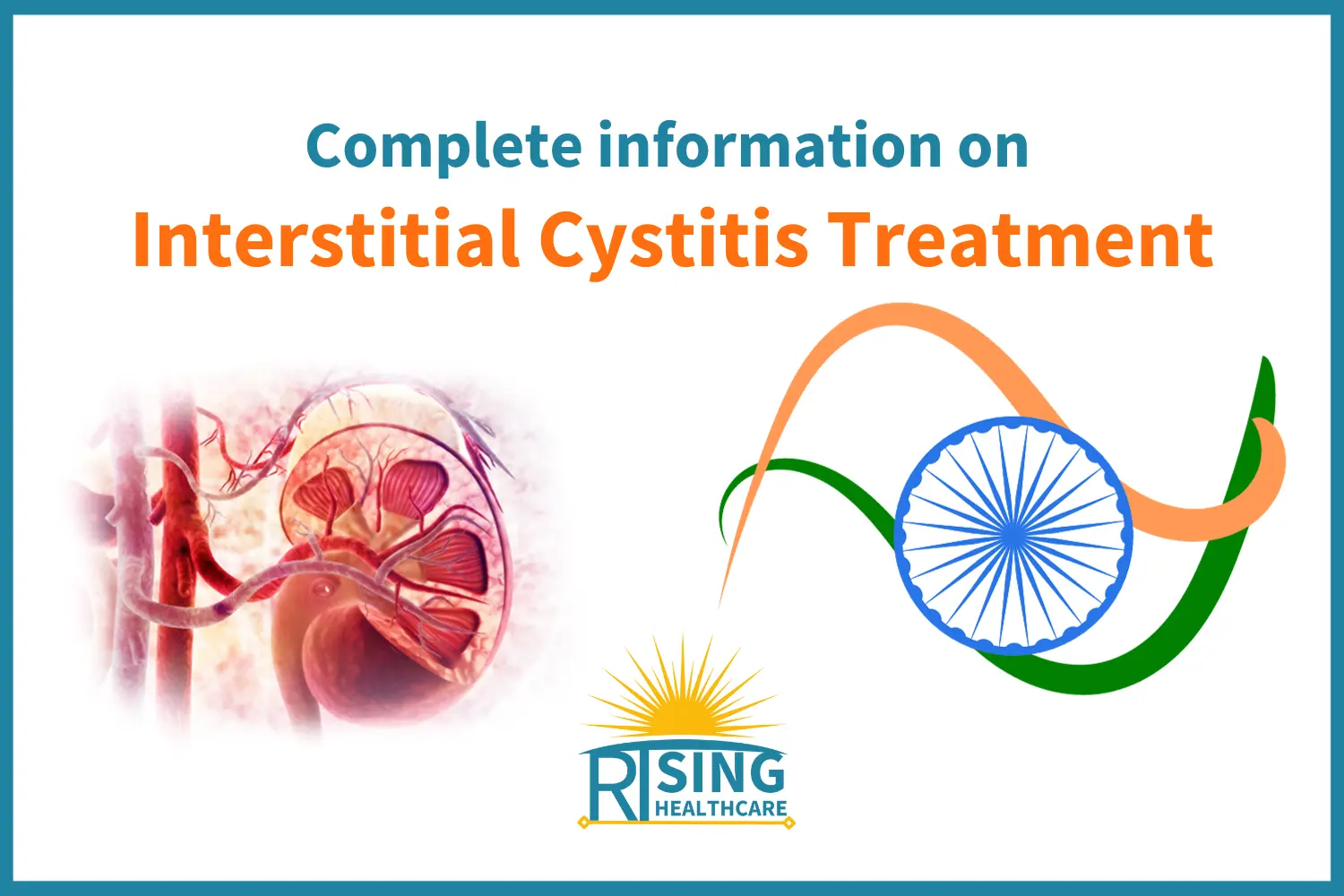
Interstitial Cystitis Treatment: Exploring Medications, New Advances, and Chronic Cystitis Solutions
Introduction
Interstitial Cystitis (IC), often referred to as painful bladder syndrome, is a chronic and painful condition that affects the bladder. It can be a distressing and debilitating condition, causing frequent urination, urgency, and discomfort in the lower abdomen. While IC doesn’t have a known cure, there are various treatment options available to manage its symptoms and improve the quality of life for those affected. In this article, we’ll delve into the world of Interstitial Cystitis treatment, focusing on medications, the latest developments in 2021, and solutions for chronic cystitis.
Contents
Understanding Interstitial Cystitis
Before we dive into the treatment options, it’s essential to understand what Interstitial Cystitis is and how it affects the body. IC is a chronic bladder condition characterized by inflammation and irritation of the bladder wall. This inflammation can lead to a range of symptoms, including:
- Frequent urination: People with IC often feel the urge to urinate more frequently than usual, even if their bladder is not full.
- Urgency: The need to urinate can be sudden and intense, making it challenging to hold back.
- Pelvic pain: Many individuals with IC experience persistent pain or discomfort in the lower abdomen or pelvic region.
- Pain during intercourse: IC can lead to pain or discomfort during sexual intercourse, causing further distress.
- Blood in urine: In some cases, blood may be present in the urine, a condition known as hematuria.
While the exact cause of IC remains unclear, it is believed to involve a combination of factors, including bladder inflammation, autoimmune responses, and even genetic predisposition. Because IC is a chronic condition, its management often requires a combination of lifestyle changes and medications tailored to the individual’s needs.
Interstitial Cystitis Medication
One of the primary approaches to treating Interstitial Cystitis involves medications aimed at reducing inflammation, alleviating pain, and improving bladder function. Here are some common medications used in the management of IC:
a. Oral Medications:
- Pentosan Polysulfate Sodium (Elmiron): Elmiron is one of the most prescribed medications for IC. It is believed to help repair the damaged bladder lining and reduce symptoms over time. However, it may take several months before noticeable improvements occur.
- Antihistamines: Some antihistamines, like hydroxyzine, are used to relieve urinary urgency and reduce discomfort. They may help by blocking histamine receptors in the bladder, reducing inflammation.
- Tricyclic Antidepressants: Drugs like amitriptyline are used not for their antidepressant properties but for their ability to reduce chronic pain. They can help manage the pelvic pain associated with IC.
- Nonsteroidal Anti-Inflammatory Drugs (NSAIDs): These over-the-counter medications can help reduce inflammation and alleviate pain, but they are usually not sufficient as the sole treatment for IC.
b. Bladder Instillations:
- Dimethyl Sulfoxide (DMSO): This treatment involves the instillation of DMSO directly into the bladder through a catheter. It is thought to reduce inflammation and relieve symptoms. However, it may require multiple sessions.
c. Bladder Relaxants:
- Antispasmodic Medications: Some medications, such as oxybutynin and tolterodine, relax the bladder muscles, reducing urinary urgency and frequency.
d. Pain Management:
- Prescription Pain Medications: In cases of severe pain, healthcare providers may prescribe stronger pain relievers like opioids. However, these are usually reserved for extreme cases due to their potential for addiction and side effects.
It’s crucial to consult a healthcare professional before starting any medication for IC. They will evaluate your specific symptoms and medical history to determine the most appropriate treatment plan for you.
New Treatments for Interstitial Cystitis in 2021
Medical research and innovation are continually advancing, leading to new treatments and approaches for Interstitial Cystitis. While 2021 is now in the past, it’s still essential to understand the latest developments in the field as they may have ongoing relevance. Here are some notable advancements and emerging treatments for IC that were gaining attention in 2021:
a. Biological Therapies: In recent years, researchers have been exploring the use of biological therapies, such as Botox injections into the bladder, as a potential treatment for IC. Botox can help relax the bladder muscles and reduce the frequency and urgency of urination.
b. Stem Cell Therapy: Some studies have investigated the use of stem cell therapy to repair damaged bladder tissues in IC patients. While this approach is still in its experimental stages, it holds promise for the future.
c. Nerve Stimulation: Sacral nerve stimulation, also known as neuromodulation, involves implanting a device that sends electrical impulses to the nerves controlling the bladder. This can help regulate bladder function and reduce symptoms in some IC patients.
d. Dietary Approaches: Researchers have been examining the role of diet in managing IC symptoms. Some studies suggest that eliminating certain trigger foods and beverages, like caffeine, alcohol, and acidic foods, may help reduce symptoms.
e. Physical Therapy: Pelvic floor physical therapy has gained recognition as a potential treatment for IC. This therapy focuses on strengthening and relaxing the pelvic floor muscles, which can alleviate pain and urinary symptoms.
f. Telemedicine: The COVID-19 pandemic accelerated the adoption of telemedicine. In 2021 and beyond, many IC patients have access to virtual consultations with healthcare providers, making it easier to receive ongoing care and management.
It’s important to note that while these treatments show promise, not all may be widely available or suitable for every IC patient. Always consult with a healthcare professional to discuss the latest treatment options and determine the best course of action for your specific case.
Chronic Cystitis Treatment
Interstitial Cystitis is a chronic condition, which means it requires ongoing management to control symptoms and improve the quality of life. In addition to medications and new treatments, several lifestyle changes and self-care practices can be beneficial for individuals with chronic cystitis:
a. Diet Modification: Many IC patients find relief by identifying and avoiding foods and beverages that trigger their symptoms. Common triggers include caffeine, alcohol, acidic foods, and artificial sweeteners. Keeping a food diary can help pinpoint specific triggers.
b. Hydration: Staying well-hydrated is essential, but it’s important to choose hydrating beverages that won’t irritate the bladder. Water is the best choice, but some individuals with IC find relief from drinking diluted fruit juices or herbal teas.
c. Bladder Training: Bladder training techniques can help increase the amount of urine the bladder can hold and reduce the frequency of urination. This involves gradually increasing the time between bathroom visits.
d. Stress Management: Stress can exacerbate IC symptoms. Techniques such as deep breathing exercises, meditation, and yoga can help manage stress and improve overall well-being.
e. Physical Therapy: Pelvic floor physical therapy, as mentioned earlier, can be an effective way to relieve pelvic pain and urinary symptoms associated with chronic cystitis.
f. Heat Therapy: Applying a heating pad or warm compress to the lower abdomen can provide relief from pelvic pain and discomfort.
g. Support Groups: Joining an IC support group can be immensely helpful. Connecting with others who are going through similar experiences can provide emotional support and valuable coping strategies.
h. Regular Follow-Up with Healthcare Providers: It’s crucial to maintain regular check-ups with your healthcare provider to monitor your condition and adjust your treatment plan as needed.
Conclusion
Interstitial Cystitis is a challenging condition, but there is hope. With the right treatment plan, including medications tailored to your needs, emerging therapies, and chronic cystitis management strategies, you can take control of your symptoms and improve your quality of life. Remember that treatment may require time and patience, as what works best for one person may not be the same for another. Consult with a healthcare professional to explore your options and find the most suitable approach to managing Interstitial Cystitis in your specific case. Stay informed about the latest developments in IC treatment, as ongoing research may bring even more effective solutions in the future.

